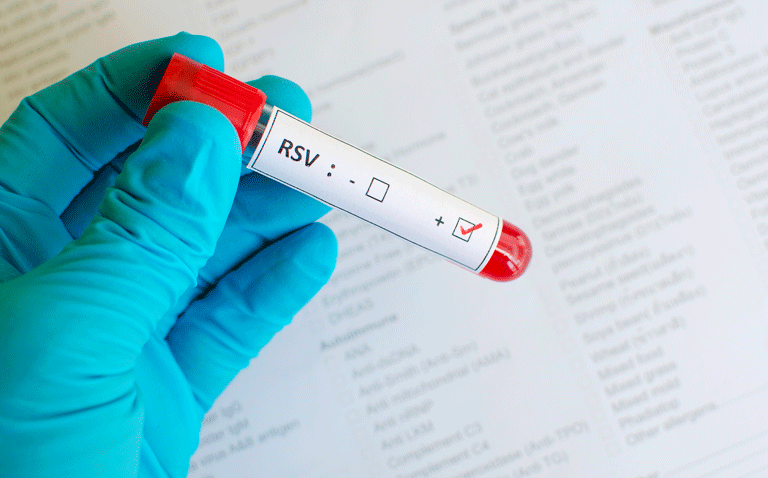Nirsevimab, the first broadly protective option against respiratory syncytial virus (RSV) for newborns and infants, has received approval for use in Europe, the manufacturer AstraZeneca has announced.
The vaccine, which has the brand name Beyfortus, has been approved by the European Commission for the prevention of RSV lower respiratory tract disease in newborns and infants during their first RSV season.
The product represents the first and only single-dose RSV passive immunisation for the broad infant population, including those born healthy, at term or preterm, or with specific health conditions.
Approximately two-thirds of infants are infected with RSV during the first year of life, and 90% have been infected one or more times by two years of age. Moreover, the rate of hospitalisation for primary infection is approximately 0.5% but can be as high as 25%.
Produced by a collaborative effort from AstraZeneca and Sanofi, the terms of which were agreed in 2017, AstraZeneca leads all development and manufacturing activities for nirsevimab, and Sanofi leads commercialisation activities and records revenue.
Nirsevimab is a long-acting, antiviral monoclonal antibody which binds to the RSV F (fusion) protein and effectively locks the protein into the pre-fusion conformation and thus inhibiting entry of free virions into cells, as well as inhibiting spread of cell-associated virus by cell fusion. The drug is designed for all infants for protection against RSV disease from birth through their first RSV season with a single dose.
Nirsevimab clinical efficacy
In a phase IIb trial, infants were randomised in a 2:1 ratio to receive nirsevimab, at a dose of 50mg in a single intramuscular injection, or placebo at the start of an RSV season. The results showed that the incidence of medically attended RSV-associated lower respiratory tract infection was 70.1% lower with nirsevimab prophylaxis compared to placebo.
Further data came in a second trial in which infants who had been born at a gestational age of at least 35 weeks to receive a single intramuscular injection of nirsevimab or placebo (in a 2:1 ratio) before the start of an RSV season. The primary efficacy end point was medically attended RSV-associated lower respiratory tract infection through 150 days after the injection.
Medically attended RSV-associated lower respiratory tract infection occurred in 1.2% of those given nirsevimab 5.0% in the placebo group, corresponding to an efficacy of 74.5% (95% CI 49.6 – 87.1, p < 0.001).
Moreover, hospitalisation for RSV-associated lower respiratory tract infection occurred in 0.6% of those given nirsevimab compared to 1.6% in the placebo group. However, this was associated with a lower efficacy (62.1%), and which was not significant (p = 0.07).
According to the EMA, nirsevimab should be given before the RSV season or as soon as possible after birth for those infants born during the RSV season.










